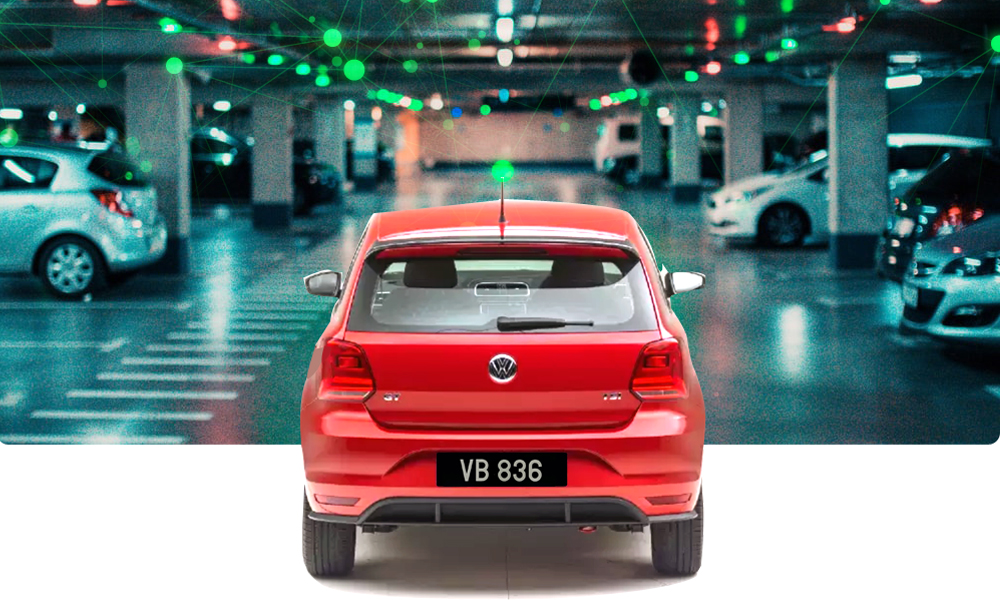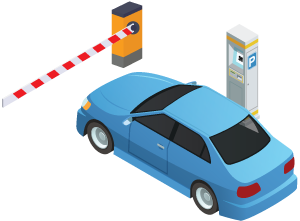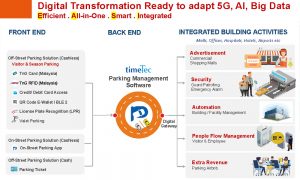Parking is a trivial but essential activity for every car owner. Even though it seemed unimportant in our daily life, it can ruin our shopping mood or further waste our extra time in finding parking space when we arrived at our destination after bad traffic on the road.
But parking means everything for parking operators, building owners, parking equipment and solution providers, which is their bread and butter, especially when the parking industry has been severely affected by the Covid-19 pandemic in 2020 and 2021, and the revival in 2022 faces other challenges, like the implementation of the new minimum wages on the 1st of May 2022. The acceleration of digital transformation added complication and precariousness for the parking industry in 2023.
In general, here are the trends motivated by smart parking technology we are likely to witness for the parking industry in Malaysia in 2023.
More and more parking sites have gone full cashless in Malaysia, and even some are still collecting cash, they will add cashless payment methods as options to either auto payment machines or install an unattended cashless kiosk at the entry and exit lanes. Cashless and unmanned environments are irreversible trends to cut operation costs, and cashless is also a modern lifestyle in city living. Besides cashless, touchless is another trend gaining momentum in 2023 to achieve a better parking experience for users.
Two technologies, RFID (Radio-frequency Identification) and LPR (License Plate Recognition) can deliver the touchless outcome anticipated by the users. In the parking access market without payment involved largely at residential buildings, the long-existed RFID technology prevailed. To achieve touchless, they just need to switch the RFID cards with the RFID tags pasted to their vehicles. For commercial parking, LPR will continue to prevail in 2023 due to the absence of TNG (Touch ‘n Go) RFID in parking. We saw some shopping malls such as Sunway Pyramid, IOI City Mall, Serdang Hospital already installed with LPR parking methods, and Suria KLCC and Pavilion Bukit Jalil also provide LPR parking options to registered users for a more seamless experience. We expect more office towers and malls to install LPR in 2023, and video parking guidance with LPR capabilities will tag along for larger deployments for shopping malls instead of ultrasonic parking guidance for better digital transformation to further benefit both the building owners and the users.
In 2023, we foresee LPR will continue to improve accuracy with AI machine learning technology to reduce parking hiccups and more parking sites will integrate with e-Wallets or parking apps or mall super apps to skip the intermediate payment process.
2. The dilemma of Parking Operators
The parking operation market improved in 2022 after the previous two years of intermittent MCOs (Movement Control Order). Still, the recovery is predicted to be “short-life”, and parking operators will face greater business sustainability challenges due to the digital transformation.
Technology advancement brings the cost down for parking equipment, improves automation and productivity, lowers the thresholds for building owners to consider managing their parking sites instead of outsourcing; or property management companies to go more aggressively to include parking operations as part of their enlarged business scope.
3. Minimum Wages boost Unmanned Operation
Malaysia increased the national monthly minimum wage on May 1, 2022, by 25 per cent from RM 1200 to RM 1500, which impacted the already competitive parking operation business. To cut costs, we foresee some parking operators will turn to technologies to reduce manpower by setting up the centralized support centre and deploying the IP intercom and remote monitoring and management system. This will further push the digital transformation in automation to another level in 2023.
4. Smart Parking – Next activities
The parking industry usually operates in a closed environment and associating with other activities has been cumbersome in the past. This silo of the parking system is about to end when location-based super apps are on the rise.
Parking would be one of the essential modules built into the location-based super app to enable building owners to boost engagement with users. For example, to lure shoppers, shopping mall management may tie up the promo code to offset parking fees; and some office towers already integrate the parking system with the visitor management system to automate the visitation process. More uncompromising shopping malls will start to explore the feasibility of promoting the shoppers with personalized advertisements on the display panel based on their shopping habits once the LPR system identifies his/her car plate number when entering the parking.
We can expect more activities linked to the parking system in 2023 since parking is the ideal digital gateway to start all other activities after the users parked their cars.
5. Interactive and Automated Season Parking System
Season parkers used to go to the office to buy and renew their season passes and to collect or return their season passes at the parking office. With the new digital technology introduced to the market, the conventional process will soon be replaced by the interactive system with an app for better automation in 2023. Season parkers just need to fill up the season parking form and pay online to activate their monthly parking access at the designated parking site by providing their car plate numbers if the site is using LPR. For sites that implemented TNG for casual parking, it can turn the TNG cards into season passes for season parkers. If no payment is received for renewal after the given grace period, the system will auto-revoke their TNG cards as season passes, but still allow users to enter the parking site by charging a casual parking rate to their TNG cards.
6. Integrated and consolidated system to form a Location-based Super App
Location-based super apps seemed to gain more ground in 2023 after the non-location-based super apps lost their steam in 2022. Unlike the nature of non-location-based super apps that tend to be more commercially focused and a platform to bridge customers and merchants; location-based super apps normally emphasize an operational ecosystem to enhance the building management and value-adds with some near-field commerce functionalities. Since parking is the digital gateway, it becomes one of the essential modules to be plugged into the location-based super apps and to connect to other activities that relate to the purpose of the buildings, which will form a smarter township when interconnected.
Some old remaining TNG sites still impose a 10% surcharge on top of the parking fees, but TNG decided to abolish this in 1Q 2021, which is good news for the parking users. But for building owners that need to link their cashless parking solutions to either online or offline payment gateways, be it a TNG card, credit/debit card, or eWallet, normally feel the pain by paying the average of 2.5% MDR (Merchant Discount Rate) to the financial institutions or payment providers, which is higher than the standard MDR charged to the credit/debit card terminals for common commercial activities. The building owners usually refuse to accept the fact that parking has much complex transaction mechanism that involves timestamp and access control. Even so, we will witness the trend of stiff competition between different parking methods and payment gateways to push down the MDR rate in 2023 which will benefit the parking owners.
8. IoT Parking Equipment and Cloud Backend System
To centralize operation, reduce manpower, real-time monitoring, remotely open barrier gates, connect to other activities etc., and to achieve all this, it requires IoT parking hardware at the front end and a cloud parking management system at the back end. 2022 is the recovery year for the parking industry after the pandemic attack, we’ll see more installation of connected IoT parking equipment and the adoption of cloud parking solutions in 2023. In this, we can call 2023 the digital transformation year for parking.
Despite the economic downturn in 2023 due to our weak currency and inflation, we expect the parking industry will continue to grow and change rapidly, hence why it’s important for building owners, parking operators, parking equipment providers and solution providers, to understand the inevitable parking trends to better equip themselves. And we believe all the changes, in the end, will benefit the parking users to achieve a better parking experience.
Please contact Kelvin Lim, Sales Manager, at kelvin.lim@timeteccloud.com (012-689 1180) or Mohd Rashid, at rashid@timeteccloud.com (017-298 2464) for smart parking system presentation and demonstration appointments. You may also call 03-8070 9933 general line or write to parking@timeteccloud.com for more information.
Teh
Hon Seng, Group CEO of TimeTec Group of Companies. Prior to forming
TimeTec, Teh led PUC Founder (MSC) Bhd to be listed on MESDAQ (ACE)
market of Bursa Malaysia in 2002. Teh initiated the R&D in
fingerprint technology in 2000, which later developed into a renowned
global brand for commercial fingerprint product known as FingerTec. In
2008, he foresaw the trend of cloud computing and mobile technology, and
over the years, he had strategically diversified and transformed its
biometric-focused products into a suite of cloud solutions that aimed at
workforce management and security industries including smart
communities and digital building system that centered around the cloud
ecosystem. Teh has more than 20 patents to his name, and he is also a
columnist in a local newspaper and a writer of several books.




